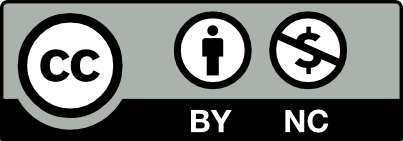Call for Papers: Special Issue on Artificial Intelligence for Optimising Solar Power Plant Performance and Maintenance
The PV module's power output varies over time in response to variations in the weather. Because of the variations in the seasons, these changes are especially significant in tropical regions like Senegal (dry and rainy). In order to maximise the output from the PV system, various maximum power point tracking (MPPT) algorithms are also provided in the literature. The two categories in which they can be categorised are traditional and intelligent approaches. In non-uniform meteorological conditions, the conventional approaches are inefficient and demonstrate a significant energy loss. However, in order to maximise the energy of photovoltaic systems, adaptive approaches are applied in response to issues like energy loss and irregular weather. AI maximises renewable energy sources' distribution and storage. The optimal periods to store energy, release it, and distribute it are determined by AI algorithms taking into account a variety of parameters, including demand, supply, pricing, and grid conditions. As the PV modules' efficiency increases, so does the PR value (given corresponding environmental conditions like increased solar radiation at the site, etc.).
High PR values may arise from your photovoltaic plant's extremely efficient inverter. AI is also used by astronomers to search through astronomical datasets. Neural networks have been taught by scientists to recognize exoplanets using dips in light curves that the Kepler space telescope has recorded. These AI systems also group stars according to shared velocity and identify and categorise different kinds of galaxies. In order to support generation-to-demand control, AI-based methods can deliver control signals in real-time. In order to facilitate the successful integration of renewable energy (RE) into power markets, decision-making can be optimised and market behaviours can be analysed using reinforcement learning approaches. Big data from renewable energy systems, such as solar panels, wind turbines, and energy storage devices, can be analysed by AI to find patterns and trends that would be hard or impossible for human engineers to find. Artificial Intelligence (AI) may detect inefficiencies in production lines and suggest changes to increase energy efficiency by evaluating data from sensors and other sources.
Businesses may save a lot of money and cut their carbon emissions as a result of this. Automation is one of the most often used AI applications for increasing productivity. Businesses can free up their employees' time by automating repetitive and time-consuming processes, enabling them to concentrate on more important areas of their work that may be more strategic or creative. One way to increase a thermal power plant's efficiency is to expand the disparities between the beginning and final stream characteristics, or conserve energy throughout the system. Artificial Intelligence (AI) has the potential to improve photovoltaic (PV) power plant operation and maintenance processes by detecting, categorising, and predicting anomalies during planned maintenance intervals. By doing this, productivity levels are increased and interruption-free, efficient energy distribution is achieved. AI gives technical systems the ability to see their surroundings, process information, solve issues, and take action to accomplish a certain objective. After receiving data that has already been processed or collected by one of its sensors, such a camera, the computer analyses it and takes action. We accept comments from a variety of fields and viewpoints, such as but not limited to: Artificial Intelligence for Optimising Solar Power Plant Performance and Maintenance.
Potential topics include but are not limited to the following:
- Predictive Service in Solar Farms using Machine Learning.
- Artificial intelligence's effects on solar energy systems.
- Utilising artificial intelligence and the internet of things can enhance the effectiveness of remote sensing and diagnosis for solar photovoltaic systems.
- Studying artificial intelligence-based techniques for solar photovoltaic system diagnosis and failure detection.
- An analysis of energy optimization and predictive maintenance.
- A taxonomy review of current AI applications for PV integration with power networks.
- An application of artificial intelligence for forecasting a renewable energy community's performance.
- Generating solar energy through advances in photovoltaic technology powered by artificial intelligence.
- Artificial intelligence techniques used for hybrid energy system optimization.
- A survey of power electronics applications for artificial intelligence.
- A review of applications of artificial intelligence for solar photovoltaic systems connected to the grid.
- Genetic algorithms and artificial neural systems for solar system management.
Timeline:
Submission deadline: March 25, 2025
Author notification: May 25, 2025
Revised papers due: July 30, 2025
Final notification: September 30, 2025
The Publication of the special issue will as per the policy of journal
Credentials of Guest Editor team:
Dr. Emmanuel Gbenga Dada
Associate Professor,
Department of Computer Science,
University of Maiduguri,
Maiduguri, Nigeria.
Email id: gbengadada@unimaid.edu.ng, gbengang@outlook.com
Profile Links:
https://scholar.google.com/citations?user=b5k7P-MAAAAJ&hl=en
https://www.researchgate.net/profile/Emmanuel-Dada
Dr. Stephen Joseph Bassi
Assistant Professor
Department of Computer Engineering,
University of Maiduguri,
Maiduguri, Nigeria.
Email id: sjbassi74@unimaid.edu.ng
Profile Links: https://scholar.google.com.my/citations?user=NFZXVnUAAAAJ&hl=en
https://www.researchgate.net/profile/Stephen-Joseph-4
Dr. Ayodele Lasisi
Assistant Professor
Department of Computer Science,
King Khalid University,
Abha, Saudi Arabia.
Email id: alasisi@kku.edu.sa
Profile Links: https://scholar.google.com/citations?user=OhAYVBQAAAAJ&hl=en






